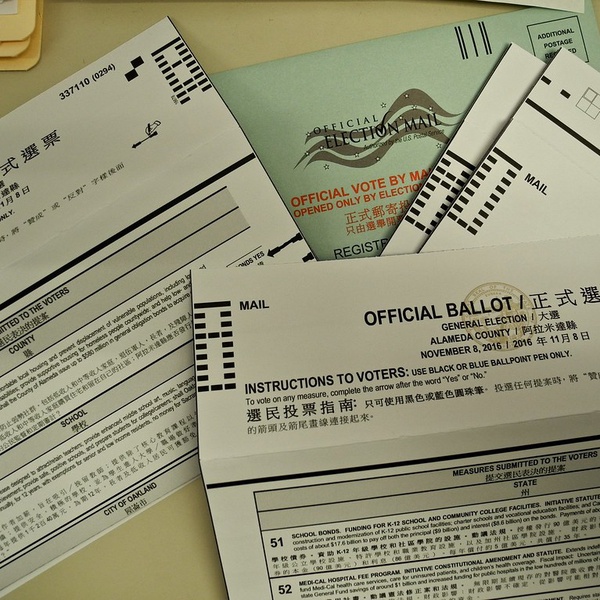
Many health experts are confident that COVID-19 will still be persistent in the fall, and some have even suggested the threat of a stronger, second wave that will come at that time. Assuming even a modest continuation of virus cases, no in-person voting center can be sure of avoiding further community spread. Although mail ballots are generally non fraudulent and would greatly reduce areas vulnerable to disease transmission, most states still have a long way to go to get most, or all of the votes as mail. There is no question that Americans should be forced to decide between their right to vote and their right to personal health.
Many claims have circulated, including from President Trump, that mail-in voting is prone to fraud. But as Brennan Center for Justice reports, “It is still more likely for an American to be struck by lightning than to commit mail voting fraud.” The numbers corroborate this. Since 2000, Oregon has issued over 100 million mail in votes, but only 12 of them were found to be confirmed fraud. Likewise, News21 review on voter fraud from 2000 to 2012 found 491 alleged absentee (how most mail in voting was done during that time) frauds – among more than a decade of elections and 146 million registered voters. Mail-in voting may be slightly more fraudulent than in person voting, but given the data, that difference is negligent. Although, that difference could rise slightly if mail-in voting becomes the norm in the national election.
And if states don’t get their act together, presidential election results could turn into a serious mess, potentially a political battle that could have more severe consequences than the health risks poised by COVID-19 on a single day – November 3rd. We’ve already seen disputes over foreign interference and miscounts in the 2016 election where most did not vote by mail; thus, missing to adequately prepare for mail-in ballots is of even further worries.
So where exactly are the valid critiques of the idea of mail-in voting? For one, the idea of being remote from election workers is troubling. Questions from election workers about signatures, photographs, party registration, and other poll information are usually more easily resolved all at once in physical interaction. With mail-in voting, even the most basic of poll issues can take much longer to process with mail, potentially delaying or disqualifying the vote. It is more common for mail-in voters to fail to fill out the requisite information on paper or write legibly, making ballots void. By its nature, in-person voting is better at hindering that.
The 2020 Wisconsin Presidential Primary – which had various polling centers open throughout the state – exemplified the struggle of states to even deliver mail-in ballots. As reported widely by local news and also the AP, many voters could not participate on the day of the election, April 7th, because they had not yet received absentee ballots. This problem has already been taken to federal court, even when thousands of Wisconsonians decided to vote in person. Many states can also disqualify mail-in votes for arriving too late to the election office. Other states have more lax laws, requiring the stamp to be on by election day. Missed votes were a serious issue on a state scale, let alone a national election.
As Politico reported, “In 2018, nationwide 91.8 percent of all absentee ballots sent in by voters to local election offices were counted, leaving 8.2 percent not counted — a significant disqualification rate.” To expand, an 8.2% miss of votes could easily be the difference between incumbent Donald Trump serving 4 more years or the emergence of the DNC nominee.
As shown in Wisconsin, disputes over whether certain disqualified votes should count often elude the states and go to the courts. Legal battles that are vulnerable to arise in these courts would undoubtedly overflow its system, in addition to causing public controversy. State legislation needs to be very clear as to allow certain disqualified votes to count so long as the problem was not of fraud, a duplicate vote, or a failure to fill out the correct information by the voter. This would not only help alleviate the trouble of missed mailed-in ballots, but also ease legal tension. Statesshould also listen to court research groups such as the Federal Judicial Center should they appropriately help to dissolve disputes. And considering the possibility of a Bush-Gore like scenario, congressmen need to prepare accordingly.
If all this isn’t cleared up, the legal ramifications could outweigh the health risks of in-person elections. Americans would hate to see their right of voting to be infringed in any way, especially by cause of COVID -19. So states need to step up to protect that appropriately.



